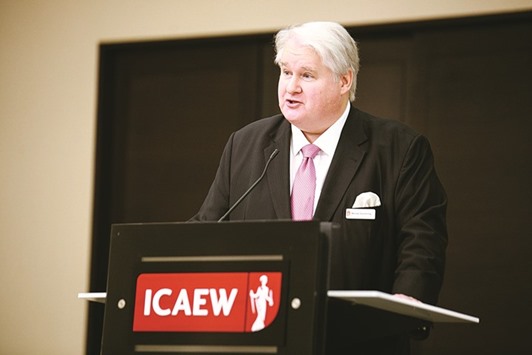GCC (Gulf Cooperation Council) businesses seeking to raise funds should look beyond traditional sources of capital and explore alternative non-bank options available in the region, according to the Institute of Chartered Accounts of England and Wales (ICAEW).
This was the consensus during ICAEW’s corporate finance faculty roundtable on raising capital in the GCC.
Finding an evolving pool of capital for borrowers, which includes mezzanines, convertibles, equity and debt, ICAEW said, however, borrowers have to be ready to satisfy the requirements and proposals from these non-bank sources in order to be able to raise funds.
“The financial sector in the GCC has evolved over the past 10 years and this can clearly be seen by the alternative sources of funding available now in the region as well as the myriad number of initiatives to support the small and medium enterprises (SME) sector,” said Michael Armstrong, ICAEW regional director for the Middle East, Africa and South Asia.
However, the GCC region still lags behind behind other regions in terms of corporates funding via institutions or debt funds, he said, adding a cultural change is required to increase business willingness to share equity.
The panellists predicted that Saudi Aramco’s ‘no ordinary initial public offering’ would help in creating a culture change and encourage GCC businesses to be more flexible in terms of sharing equity.
The speakers agreed that the banks are continuing to lend to businesses that have predictable or tangible cash flow. Lenders are still keen to lend to businesses in education, healthcare, oil and gas as well as aviation.
Finding that banks are collaborating with each other to understand the SMEs market, the panellists said they are stepping out of the regulatory arena and are trying to be innovative. For example, banks are trying to be flexible with their customers who have bank unsettled payments or cheques by giving them a 15-day grace period in which to come up with a payment plan before taking legal action.
Panellists highlighted the challenges facing borrowers when raising funds from financial institutions. They are a lack of education amongst borrowers on the application process and requirements, poor corporate governance and the complicated legal or corporate structure of their business.
For example, borrowers hesitate when they are informed about the cost of acquiring capital, or they are not prepared to answer the types of questions that investors tend to ask, such as cash flow management.

Armstrong: Non-bank sources of funding.


